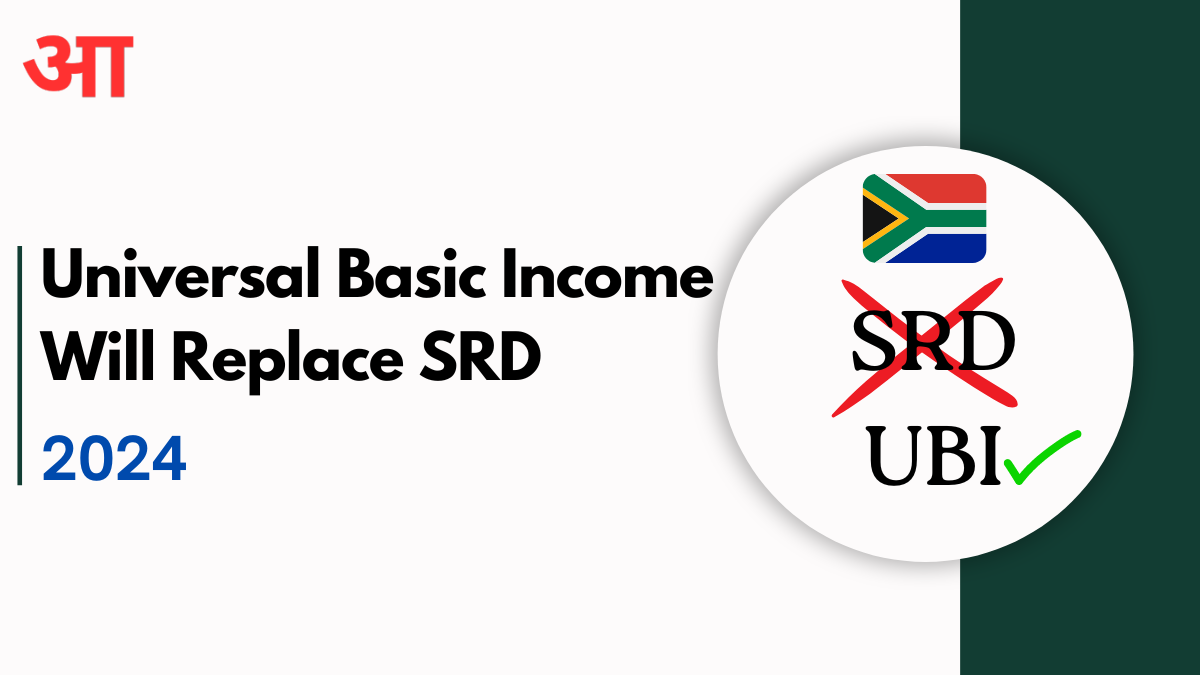South Africa is getting ready for a major change. The country intends to replace its Social Relief of Distress (SRD) grant with a Universal Basic Income (UBI), a significant shift in the country’s social welfare policy. The African National Congress (ANC) is leading this effort. The goal is to provide regular and unconditional financial support to all adults between 18 and 59. This move will position South Africa as a leader in implementing UBI nationally.
Contents
Universal Basic Income Will Replace SRD 2024
The Social Relief of Distress (SRD) grant was initially introduced as a temporary measure to assist during the challenging times of the COVID-19 pandemic. It has played a vital role in supporting millions of South Africans struggling to meet their basic food needs. However, criticism has been that the SRD system is not sufficiently inclusive.
As part of a broader strategy to address poverty and inequality, the African National Congress (ANC) has outlined a plan to transition from the SRD to a Universal Basic Income (UBI) system. Unlike the SRD grant, the UBI will be available to all adults within a specific age range, without considering their current income level or employment status.
This shift aims to create a more comprehensive and accessible form of financial assistance to uplift those in need, providing essential support across a wider spectrum of the population.
Read Below
Who is Eligible for UBI?
The new Universal Basic Income (UBI) grant in South Africa is designed with straightforward eligibility rules to ensure that all adults between the ages of 18 and 59 are eligible for a monthly payment. The inclusive nature of this approach aims to guarantee that every eligible individual receives the necessary support, with the ultimate goal of leaving no one behind.
The Advantages of Universal Basic Income
The implementation of Universal Basic Income (UBI) in South Africa is anticipated to yield various significant advantages:
- Decrease in Poverty and Inequality: UBI has the potential to lift millions out of extreme poverty, leading to a more equitable society and enhancing living standards.
- Boost to the Economy: Directly providing funds to individuals can enhance the economy by increasing consumer spending.
- Empowerment and Dignity: Providing financial freedom, UBI empowers people to make choices that align with their individual needs.
- Promotion of Entrepreneurship: Individuals might be more inclined to take on risks and venture into entrepreneurship if they have a guaranteed income.
- Simplification of Social Welfare: Simplify the social welfare system by eliminating complicated eligibility requirements and means-testing processes with a universal grant.
Challenges to Consider
While the concept of Universal Basic Income (UBI) offers compelling benefits such as poverty alleviation and economic security for all citizens, several challenges must be carefully addressed to ensure its successful implementation and effectiveness.
- Funding: Funding UBI necessitates significant resources. Different methods to finance UBI have been suggested, such as a social security tax, wealth tax, or greater VAT revenue resulting from increased consumer spending.
- Inflation Risk: Warning: implementing a widespread UBI might cause inflation if it’s not carefully controlled.
- Public Support and Political Will: To ensure the effective execution and continuation of UBI, it is crucial to have a firm commitment from political leaders and public support.
- Monitoring and Evaluation: Continuous assessment and monitoring of the UBI program will be essential to gauge its effects and implement any necessary changes.
UBI in the Global Context
South Africa’s progression towards UBI is a component of a broader worldwide discussion on universal basic income as a method to address poverty and inequality. Amid the pandemic, various nations experimented with temporary income support initiatives, propelling the concept of UBI into the public consciousness.
Conclusion
The transition from SRD grants to a Universal Basic Income in South Africa represents a courageous and potentially game-changing policy shift. UBI seeks to alleviate poverty, boost economic activity, and foster individual empowerment by offering unconditional financial assistance to all adults.
This move serves as a model for other countries to emulate. As South Africa grapples with the complexities of implementing this ambitious policy, the global community will observe and draw lessons from its experience.
Click the link to know more.

Mahesh Sen, a seasoned student advisor, writes informative articles on educational topics. Mahesh gives valuable insights and practical advice to guide students through their academic challenges and milestones.
